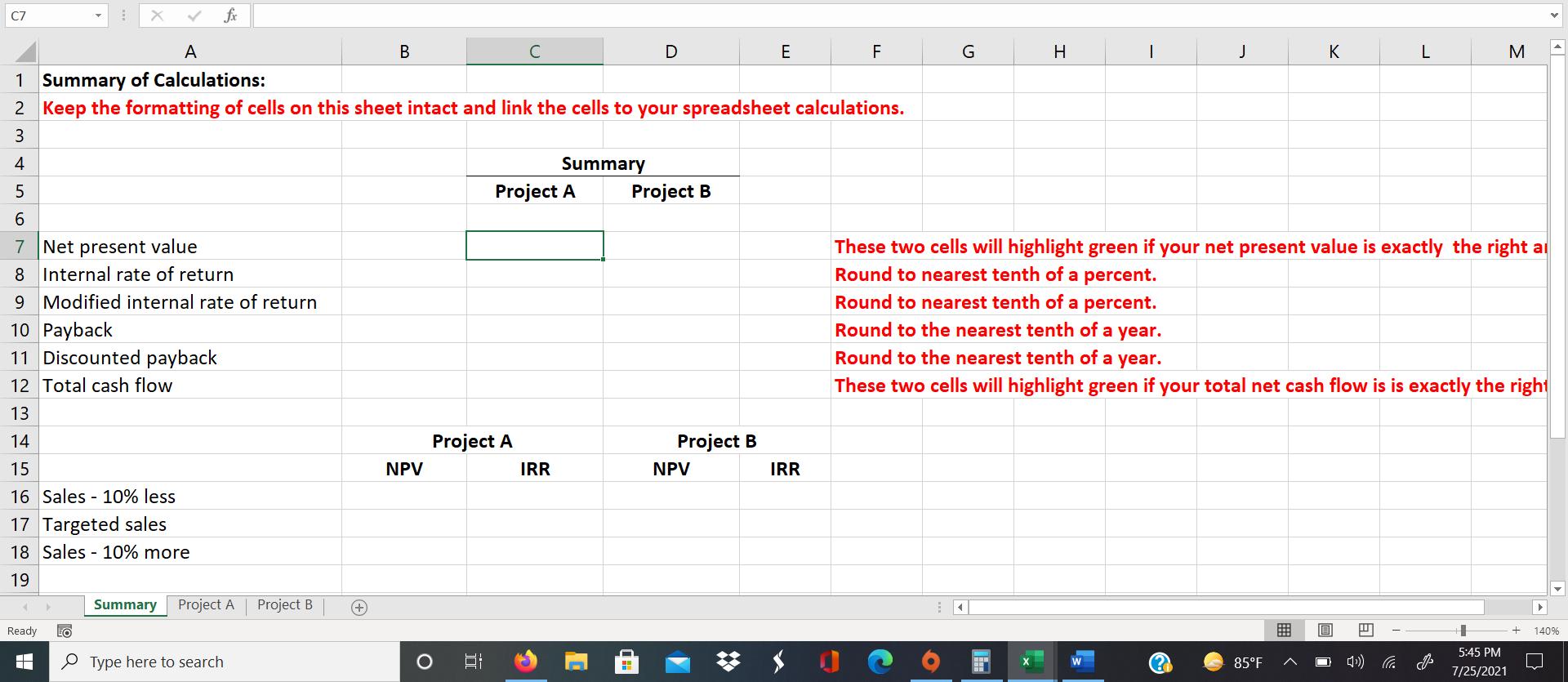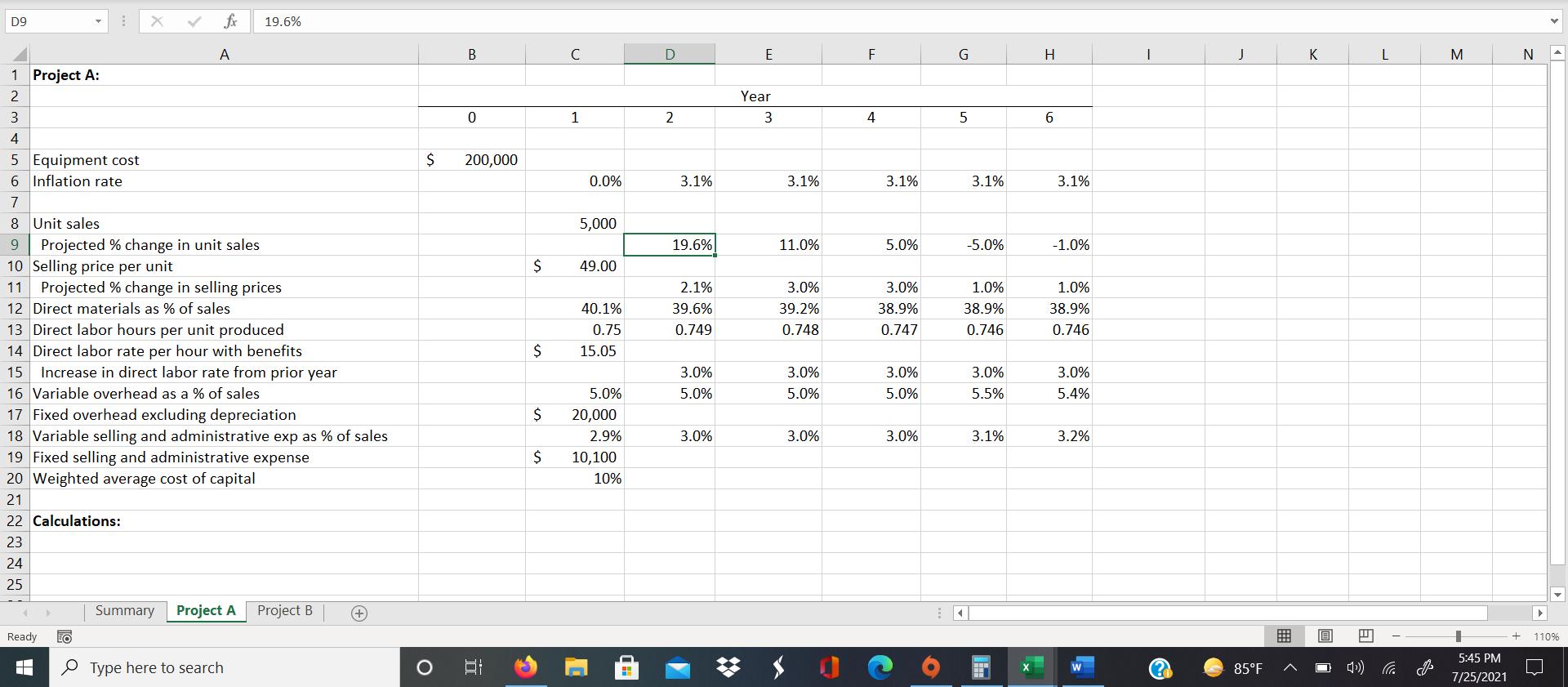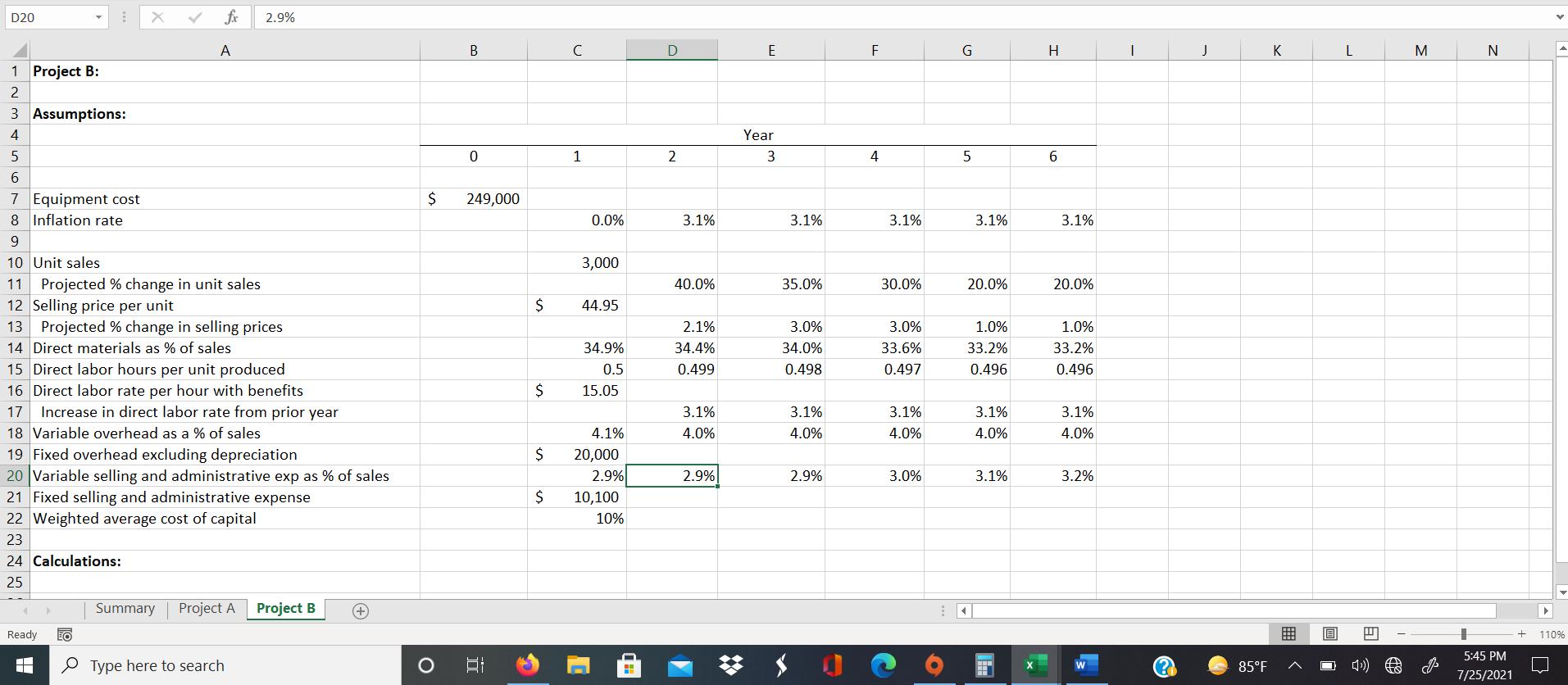Answered step by step
Verified Expert Solution
Question
1 Approved Answer
You have been hired by Dynamic Company, Inc. to help them evaluate two projects and help them select the best one. Project A represents an
You have been hired by Dynamic Company, Inc. to help them evaluate two projects and help them select the best one. Project A represents an expansion of an existing product line. Project B involves an entirely new product line. They have provided you with these basic assumptions:
- The weighted average cost of capital is 10.0%
- Expected inflation by year is given in the spreadsheet. That is already built into the variable expenses that are a percent of sales, but not the fixed expenses.
- Both projects will last for six years and the equipment will last until the end of the project.
- They use straight-line depreciation for both book and tax depreciation with no salvage value.
- Dynamic Company will provide information about initial sales expected and annual increases or decreases in sales.
- You will also be provided with select information about expense to allow you to forecast those expenses.
- All fixed expenses except for depreciation will increase at the rate of inflation each year.
- There are not working capital changes.
- The company’s average tax rate is 25%.
Additional Instructions:
- Labor rates and selling prices per unit should always be rounded to dollars and cents.
- Revenue and individual expenses should be rounded to the nearest whole dollar each year.
- If the depreciation expense does not total the exact amount adjust it in year 6.
- All percentages should be rounded to the nearest tenth of a percent.
- Show all of your calculations even if you need to provide schedules for the calculations.
- Model your cash flow calculations format after the example I provided to you in class.
Required:
- Use the template provided for the project. Add your last name followed by the first initial of your name to the end of the file name. If it not properly formatted your grade will be reduced by ten points.
- Calculate the Net Present Value for each project
- Calculate the Internal Rate of Return for each project.
- Calculate the Modified Internal Rate of Return for each project.
- Calculate the Payback Period for each project.
- Calculate the Discounted Payback Period for each project.
- Provide a table for each project showing the Net Present Value and Internal Rate of Return for each of each of the following conditions and list them in the Summary provided:
- With the stated assumptions
- With sales 10% higher
- With sales 10% lower
- Determine which project you would recommend and justify your answer completely.
- Relate which project you feel is more risky with be sure to justify your answer completely.



C7 fr A D E K M 1 Summary of Calculations: 2 Keep the formatting of cells on this sheet intact and link the cells to your spreadsheet calculations. 3 4 Summary 5 Project A Project B 6 These two cells will highlight green if your net present value is exactly the right at Round to nearest tenth of a percent. 7 Net present value 8 Internal rate of return 9 Modified internal rate of return 10 Payback 11 Discounted payback 12 Total cash flow Round to nearest tenth of a percent. Round to the nearest tenth of a year. Round to the nearest tenth of a year. These two cells will highlight green if your total net cash flow is is exactly the right 13 14 Project A Project B 15 NPV IRR NPV IRR 16 Sales - 10% less 17 Targeted sales 18 Sales - 10% more 19 Summary Project A Project B Ready EO 140% 5:45 PM P Type here to search 85F P(D 7/25/2021 %23
Step by Step Solution
★★★★★
3.19 Rating (152 Votes )
There are 3 Steps involved in it
Step: 1
Project Evaluation Project A Assumptions Weighted average cost of capital 100 Expected inflation by ...
Get Instant Access to Expert-Tailored Solutions
See step-by-step solutions with expert insights and AI powered tools for academic success
Step: 2

Step: 3

Ace Your Homework with AI
Get the answers you need in no time with our AI-driven, step-by-step assistance
Get Started


